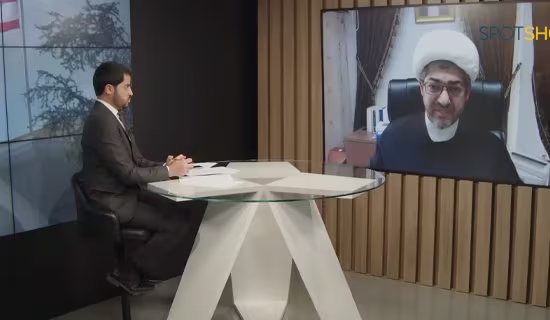
Following are excerpts from an interview with Palestinian analyst Sa'id Erekat, former spokesman of UN delegation to Iraq, which aired on Al-Arabiya TV on September 21, 2011, following US President Obama's speech to the UN General Assembly:
Sa'id Erekat: In my opinion, if we compare this speech [by Obama] with the speech he delivered on September 24, 2010 – when he said: Next year, we will witness an independent Palestinian state – we see a major regression, not merely in the content of his speech, but even in his tone. We heard him using, for the first time, the discourse of the past, used by Israel's supporters in Washington, and especially AIPAC, according to which Israel is a tiny state of eight million, surrounded by many hostile countries which lie in wait for it, and there are those who call for its destruction.
Interviewer: And the children…
Sa'id Erekat: We have not heard such a speech for a long time, especially since President Obama assumed his present position. In my opinion, this speech today has disappointed the Palestinians. They used to view Obama as someone who would steer their ship toward the coast of peace and of independent statehood. But considering what is happening with regard to the Palestinian bid for [UN] membership – I think that he was disappointing.
Interviewer: Do you feel that when President Barack Obama says – and let me quote him verbatim: "There is no shortcut to the realization of peace. Peace is not easy and will not come through UN resolutions"… Do you consider this speech to be a message to the Palestinians that the US is adamant about stopping the Palestinian bid in the Security Council, even if this might mean exercising their right of veto?
Sa'id Erekat: Absolutely. The truth is that the speech he delivered today is self-contradictory. He talks about a new state in South Sudan, and says that the UN should strive to achieve peace everywhere. But when he talked about the Palestinian issue, he said that it had to be resolved through negotiations, and that these negotiations stalled over the wall of Israeli refusal, and over Netanyahu's refusal, who continued with the settlements, and even sped up the settlement activities.
In my opinion, this speech was made with an eye toward the elections. There is a feeling… Note, brother Talal, that when he said: "the basis I put forward last May," this time, he did not utter the word "1967." All he said was: "the basis I put forward last May," and as we all remember – you, me, and everybody – the Israeli lobby AIPAC, the Israeli government, and specifically Netanyahu, went and gave the president a lecture, condemning him for using the word "1967," and for taking about the need for Israel to return to the 1967 borders. They called these borders "indefensible." So we see that there is a regression, not merely in tone, but in content as well.
Interviewer: Do you think it was presidential candidate Barack Obama speaking, and not president Barack Obama? This is suggested by his saying: "America's commitment will not be shaken. Our friendship with Israel is very deep." These are strong words, which may have been directed toward AIPAC, and toward the Jewish influence and support… support for Israel in this country.
Sa'id Erekat: Of course, he learned a lesson two weeks ago, when the 9th district, here in New York, went to the Republicans. In this electoral district, 55% of the population are Jews. As you know, former NY mayor Ed Koch worked against him. [Koch] said: "We are sending a message to Obama that he is not enough of a friend to Israel. Therefore, you must stop exerting pressure upon Israel, especially with regard to the issue of the settlements, and to putting an end to the Israeli infringements."
[…]













